Written by COURTNEY KRUK for Amplify by Ample.
When Michael Elias thinks about his children, currently aged three and five, he doesn’t just consider their future; he contemplates the state of the world they will live in.
It’s understandable given he’s a parent and the founder of a company, a correlation that’s made Elias acutely aware of the challenges facing the next generation and the legacy we are leaving them. “Our kids are going to grow up very privileged, as do most Australian children,” Elias says, explaining what motivated he and wife Tina Elias to start questioning the purpose and impact of their men’s sock and underwear company, Manrags. “I kept thinking about my son or daughter turning around one day and going ‘well thanks for everything that you’ve done, but you fucked the planet in the process’. You know, ‘thanks for the car, which is electric, but I can’t drive anywhere because this whole place is a dump now because of you and your shit generation’.”
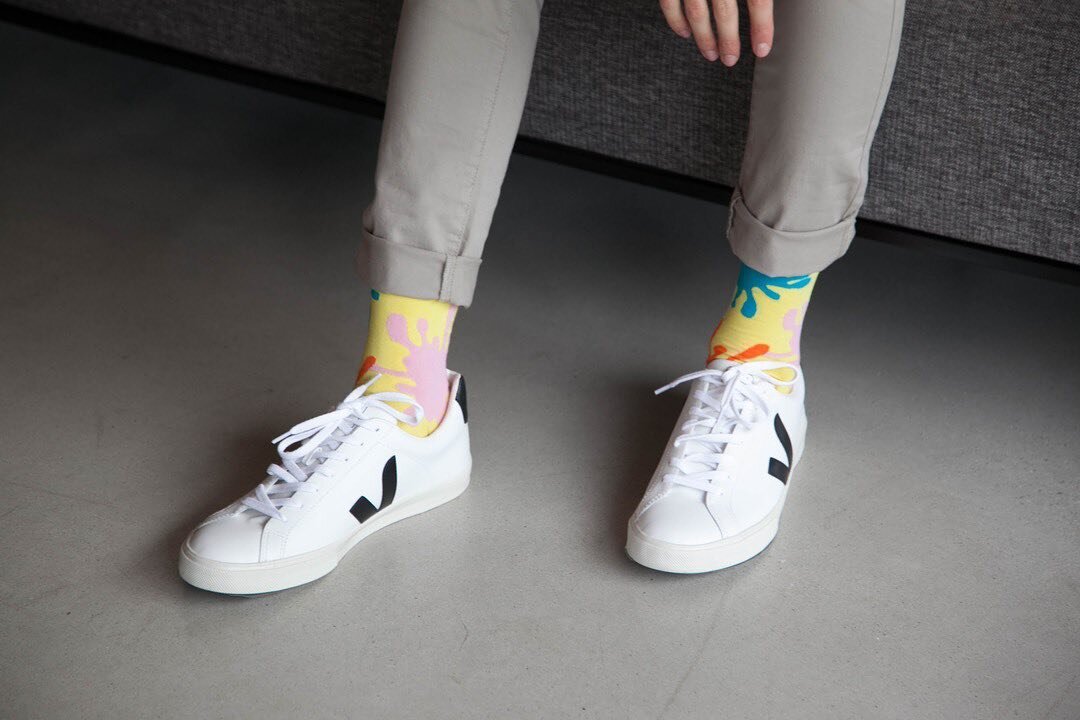
IMAGE: COURTESY OF MANRAGS
Elias has the winning humour and affable disposition you’d expect for the Managing Director and founder of a brand like Manrags. Established in 2016, Manrags launched as a subscription service, delivering premium quality socks and underwear in quirky designs and bright colours to men around the world. Gone were Grandad socks in sensible grey and black. Men could spruce up their image sporting socks with motifs like whales, toucans and dinosaurs. They quickly grew and began distributing to over 70 countries, gaining awards and acclaim along the way. Then, a few years after they launched, something changed. It dawned on Elias that our old, unwanted socks are chucked in the bin. He was compelled to examine the environmental impact of their product as a contributor to textile waste and landfill.
“You fall into this world of textile landfill and find out all this information, the impact from it and then the flow-on impact in terms of greenhouse gases,” he says. “You start questioning what’s happening with everyone else [in the industry], how big is this problem?” Over half a billion kilograms of unwanted clothing ends up in Australian landfills every year, and it’s estimated that Australians discard approximately 6,000 kilograms of fashion and textile waste into landfill every 10 minutes. If we continue at this rate, in ten years, the amount of textile waste accumulated will be enough to cover the entire surface area of Australia.
No longer willing to contribute to the issue, Elias decided to use his brand to become a proponent of change in the industry. “We decided we needed to take responsibility for our product and find solutions, which we did,” he explains.
“WE [CAME UP WITH] A REUSE AND RECYCLE SOLUTION FOR SOCKS AND LAUNCHED IT TO OUR COMMUNITY BASE WHO LOVED IT. WE THEN [WONDERED] WHY TAKE RESPONSIBILITY FOR THE END OF LIFE FOR OUR PRODUCT ONLY? WHY NOT DO THIS FOR EVERY SOCK IN AUSTRALIA? AND THEN JUST LIKE THAT, WE BLEW UP AND DIVERTED OVER HALF A MILLION SOCKS FROM GOING TO LANDFILL WITHIN THE SPACE OF FOUR MONTHS.”
Manrags became the world’s first ‘Circular Subscription Club’, partnering with Textile Recyclers Australia in September 2019 to save old and worn socks from landfill. In April, they stepped up further and launched the Clothing Recycling Collection, a textile recycling service that accepts all clothing and shoes from anywhere in Australia. For $25, participants can have up to ten kilograms of clean textiles collected from their front door and prepared for reuse and recycling. Items still in good nick are sent to one of the charities they partner with like Good360 and Ready Set. Clothes no longer fit for wear might be repurposed for items like tote bags or aprons, or shredded for insulation or stuffing for pet beds.
So far, Manrags have diverted over 70 tonnes of clothing and shoes from landfill and prevented over 300,000 kilograms of greenhouse gasses from reaching our atmosphere. All of this, Elias says, while being financially viable. “That’s very important because the point we try to make is, do the right thing and it creates financial viability and benefits,” he explains.
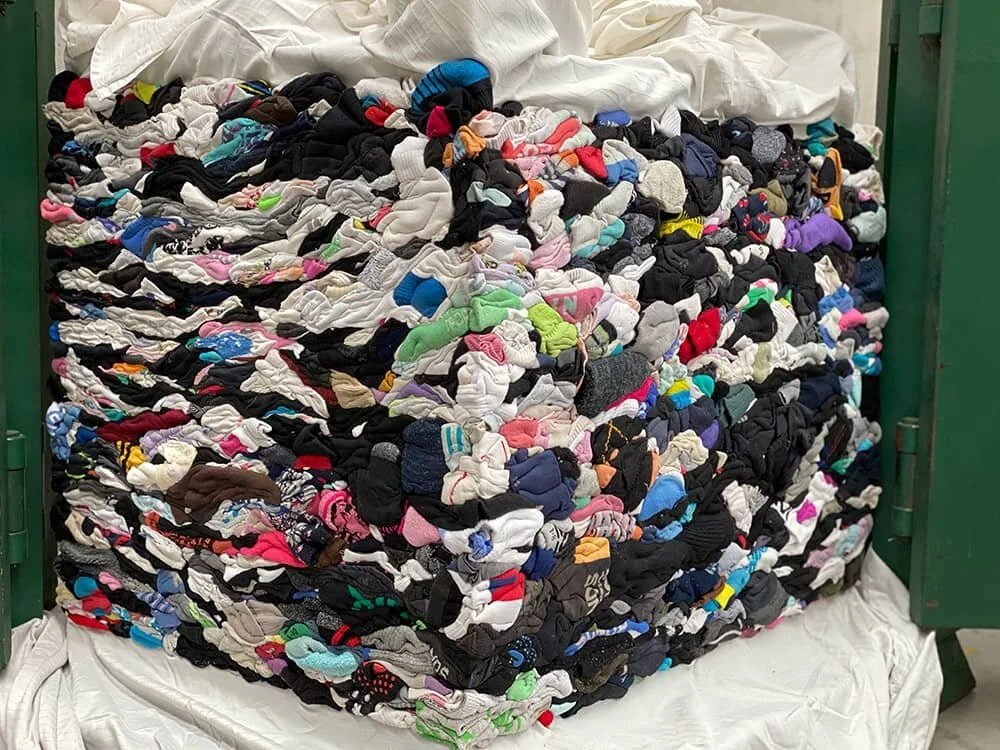
IMAGE: COURTESY OF MANRAGS
“WE SEE THAT ADVOCACY FOR OUR BRAND HAS QUADRUPLED BECAUSE PEOPLE GO, YOU DO GOOD, AND GOOD THINGS HAPPEN. YOU DO GOOD, AND WE WILL REWARD YOU. FROM A BUSINESS AND COMMERCIAL PERSPECTIVE, IT MAKES SO MUCH SENSE.”
The sustainability overhaul and sock recycling initiative saw product sales increase by 220 per cent. It’s motivated Manrags to continue to set the bar and take necessary risks to maximise their overall sustainability. “In the next couple of months, we will move away from premium Egyptian cotton which has been a very big part of our brand identity, who we are and what we’ve offered for the last four years. That will be replaced with recycled cotton,” he explains. “Now there’s a lot of R&D that needs to go into this kind of thing but all in all, it’s been very positive. It’s a journey, and we don’t have all the answers, but our view is, do something, and then do the next thing. Take the risk and validate it and then get onto the next thing.”
“I say to a lot of people it would be so much easier if we were a new brand because knowing what we know today, we would define everything from the beginning. It’s a lot more difficult to transition and evolve,” he says.
“BUT WE’RE NOT GOING TO ACCEPT THAT WE’RE GOING TO BE ENABLERS AND CONTRIBUTORS. AT THE END OF THIS, WE WANT OUR CHILDREN TO BE ABLE TO CELEBRATE WHAT WE DID BECAUSE ESSENTIALLY WE HAND OVER THIS WORLD TO THEM.”

IMAGE: COURTESY OF MANRAGS
Ensuring the world is fit for future generations has motivated consumers to be conscious of their individual impact. Elias notes people are learning more and more about ways to reduce their carbon footprint. On a broader scale, he wants to see the media and industry leaders do more to generate greater awareness and support businesses and individuals taking positive actions. “Celebrate that people are doing something as part of a journey. No one just wakes up sustainable. What we should be doing is supporting brands and companies on their transition as they become more “woke” and do things right. As they realise their impact and look for ways to do things better,” he says.
The excitement is apparent in Elias’ voice when he speaks of the future, both in terms of Manrags and the possibilities of the sustainability movement, particularly as more businesses and innovators get involved. “We find ourselves in this space where what we’ve done is unique and pioneering, and I’m baffled as to why. I’m not complaining, but over time let’s see 50 of us. Let’s see 100 of us. That’s what’s going to create more opportunity and get more people thinking of solutions.”
Aside from a complete rebrand to suit their new, highly sustainable business ethos, Elias says there are two big things on the horizon for Manrags. “We’re still in the stage of raising awareness, creating knowledge and educating, so we need to do that more. We’ve reached a shitload of people, but that’s not enough,” he laughs. “There’s a lot more awareness that we need to create here. I think one of the most exciting parts, and my board will tell me to shut up here, is what comes next from [this movement]. How do we domestically create value out of waste?”

IMAGE: COURTESY OF MANRAGS
“So yes, the rebrand and continuing [to raise] greater awareness because it’s still in its early stage, its infancy. But as for what really excites me, the ‘big BIG’ next will be the final output product from textile waste that has [been recycled]. Hopefully, it’s not just the insulation or carpet underlay, but it’s something of value that we see distributed in different ways.”
Search
Latest Posts

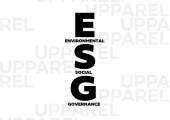
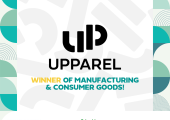
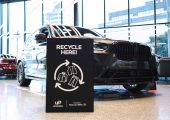

Ready to 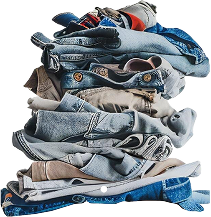 Recycle?
Recycle?
Join thousands of Australians making a difference, one textile at a time.
